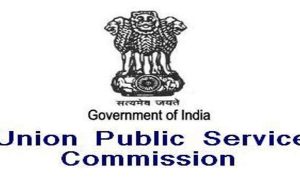Interest rates fell to their lowest in 20 years, home loans became attractive, and most borrowers saw their EMIs shrink.
Also Read – Real estate rates up 14% in NCR
By Shantanu Kumar
The last few years were a happy time for those with home loans. Interest rates fell to their lowest in 20 years, home loans became attractive, and most borrowers saw their EMIs shrink.
But now interest rates are going up and so are EMIs. Or are they?
Home loans are poorly understood. Most borrowers take a fill-it-shut-it-forget-it approach to their loans. But a home loan is likely to be one of your largest expenses. And you can save lots of money if you actively manage it.
Here are five easy tips.
When you start
Pre-EMIs are a seductive offering where you pay a lower-than-expected EMI till you take possession of the property. But here is what is going on behind the scenes: you are paying just the interest on the loan. You are not paying back the principal amount and the loan remains as it is. And in case the project is stuck or delayed, you may be on pre-EMI for years.
This is great for the lender but not for you. As soon as you take a home loan, you should start paying off the principal amount. To minimise interest cost, you must start reducing the principal amount as early as possible.
Tip #1: Skip pre-EMI and go to regular EMI immediately
Every three months
The interest rate on your home loan is not fixed. It changes every time the RBI changes its policy rates. So, the interest rate on your loan could change a few times every year.
It is important to keep an eye on the resultant action of your bank. They may have changed your EMI. Or they may have changed your loan tenure while keeping your EMI the same. Either way your loan has changed, and so has your interest cost.
Do not take a fill-it-shut-it-forget-it approach. Review your home loan every three months. Stay on top of things.
Generate your loan statement and check for the following:
● Has your EMI changed?
● Has your Interest rate changed?
● Has your loan tenure changed?
Tip #2: Review your loan every three months
Also Read– Is mutual fund a good option for senior citizens?
In the early days
When you take a home loan, you may have stretched the household budget to accommodate the EMI.
Over time, your salary will rise. You will occasionally get a bonus. Or there may be some other windfall.
You should use all these opportunities to make prepayments toward your loan. And each time you pre-pay, ask the lender to reduce the tenure of the loan.
It can be enticing to ask for the EMI to be lowered. But that is not the best choice. A longer loan means a higher interest cost. By reducing the tenure of the loan, you will reduce your interest cost.
Similarly, when interest rates fall, the lender will reduce your EMI. At that point, go to the lender and ask them to keep the EMI the same and reduce the tenure instead.
Tip #3: Prepay when you can and choose a lower tenure. not a lower EMI.
In the middle
When interest rates rise, banks usually do not increase your EMI. Instead, they increase your loan tenure. While you do not feel the impact of this in your monthly budget, the repercussions are enormous.
| Interest rate 6.7% | Interest rate 8.6% | Impact | |
| Outstanding loan amount | 1cr | Same | 0 |
| EMI | 88,214 | Same | 0 |
| Balance Tenure | 180 months | +234 months | +54 months |
| Total Interest Cost | 58.78 Lacs | 106.72 Lacs | +47.94 Lacs |
For example, if interest rates go up by about 2%, and you keep the EMI unchanged, you could end up paying almost 50 lakh more on a one crore loan. Our SMART Tool helps you crunch numbers and make informed decisions.
It is always better to combat an increase in interest rates by increasing your EMI and/or by making a prepayment. The combined action reduces the impact of rate hikes.
Tip #4: When interest rates rise, pre-pay and/or increase EMI
At the end
As you get to the end of your loan tenure you may be tempted to pay it off quickly and be done with it. Particularly if you have been aggressively pre-paying your home loan, this may seem like the obvious thing to do.
But don’t be in a rush to close your loan. Remember that towards the end of the loan, the EMI is largely principal, and the interest amount is a small fraction.
If you have the money to close out the last bit of your home loan, it is often better to add it to your investment portfolio than to pay off the lender.
Tip #5: At the tail end of the home loan, don’t rush to close it out.
Emotional Bias & Hard Numbers
Home loans bring conflicting emotional challenges. They allow you to live in your dream home. But often carry a heavy emotional burden.
Moreover, the arithmetic of home loans and EMIs is not intuitively obvious. It is not easy to see exactly how much interest you are paying. And how much you could save by a small pre-payment or change in EMI.
To help you run through the numbers and make an informed decision, we have created the SMART tool. You can use it to actively plan your home loan, save money on interest and prepare for changes in interest rates.
The author is Founder at AutoFi India.
Disclaimer: Views expressed are personal and do not reflect the official position of the author’s institution or policy of Financial Express Online. Reproducing this content without permission is prohibited.





































